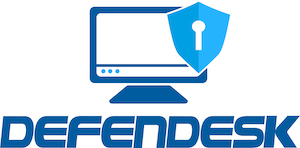5 Ways Technology Can Increase Workplace Productivity

One of the most common searches among professionals is “how to be more productive.” As our roles become more complex and the workplace changes, professionals are looking for ways to simplify their workloads. Employers are wondering what they can do to increase productivity and profitability.
For ages, humans have been leveraging tools to better accomplish tasks. Today, our most powerful and effective tool is technology. The tricky part is there are a vast number of software applications and technology solutions, and there isn’t a universal solution that works for every business. Projects for internal improvement often are put on the back burner because they can be time-consuming. Even with an internal IT resource, it can be challenging to find the time to research, plan, implement and train staff on new tools. However, just because your staff doesn’t have the time to take on these types of projects doesn’t mean they should not be a priority.
Technology and Productivity
When employees cannot meet productivity targets, they often aren’t being properly supported with the resources to do so. In fact, according to Ivanti, as many as 85% of workers don’t have the right resources and technology to take care of their tasks efficiently.
Investing in technology solutions can drastically improve a business’s productivity and output quality. However, you need to make sure that the solutions you implement align with your team’s needs and properly train your team to utilize them.
The decision of what solutions to invest in should be well-researched and discussed between your internal IT resources, team members, and the IT professional managing the project. We help you create an investment and implementation plan to ensure you see a return on investment and your staff is well equipped to transition to these new tools. Here are some of the common approaches we take:
1. Optimize Everyday Tasks
Everyone does small, mundane things every day that take a few seconds or a few minutes. Over time the amount of time spent on these tasks can really add up. Technology can simplify these tasks and improve workplace productivity and employee satisfaction. You can also minimize your employees taking unnecessary extra steps or getting stressed just to get these things done.
For example, if your team needs to schedule group meetings, you can utilize shared calendars or a scheduling assistant tool to quickly see times where everyone is available. This reduces multiple back and forth messages and significantly reduces the time you have to spend coordinating schedules.
2. Eliminate Manual File Sharing
How many times have you had to wait several minutes (or even hours) waiting for a colleague to send you a file that you needed? Or, how many times have you been interrupted by a colleague to get a file that they desperately needed?
Creating, editing, and sharing files is one of the most common tasks employees do every day. However, file storage and sharing tools are often overlooked and not maintained. Cloud storage and file-sharing technology make it easy for employees to track the history of changes made to a document, collaborate simultaneously, and find all the information they need to complete their tasks. To learn more about how file storage can improve collaboration and productivity, check out our blog on SharePoint here.
3. Utilize Individual and Group Chats
Messaging and chat technology can improve communication efficiency and employee productivity. Chats are easier to compose and typically elicit a faster response. Instead of typing out formal emails and awaiting responses or having details get lost in the shuffle, chats allow teams to stay connected and quickly get clarification.
Miscommunication has a hefty price tag ― literally. Debra Hamilton revealed that companies with 100 employees lose about $420,000 per year due to inefficient communication among employees.
4. Drive Professional Development
Your employees are smart, and giving them the time to learn and expand their skill set can empower them to evolve their workflows, becoming more productive and effective. Additionally, as your business evolves and you implement new tools, it is important to hold staff training to ensure your team can leverage their full potential.
5. Schedule Regular Productivity Audits
Most businesses are not committing to regular audits of their internal processes and tool utilization. Having insight into the effectiveness of your processes and if your team is benefiting from the tools you have made available to them allows you to make tweaks to get better and better.
Having a pulse on how things are going helps you quickly identify issues that reduce productivity or create a roadblock for your team.
Productivity Should Be A Priority
Productivity at work is a concept that affects almost all key business metrics such as operational costs, revenue, employee retention and attrition, and even customer and client satisfaction. It also impacts more intangible, yet equally important, things, including company culture, work environment, employee experience, and brand identity.
We would be happy to help you make these projects a priority and get your team the tools they need to succeed. You can book a call with us via the button below.
